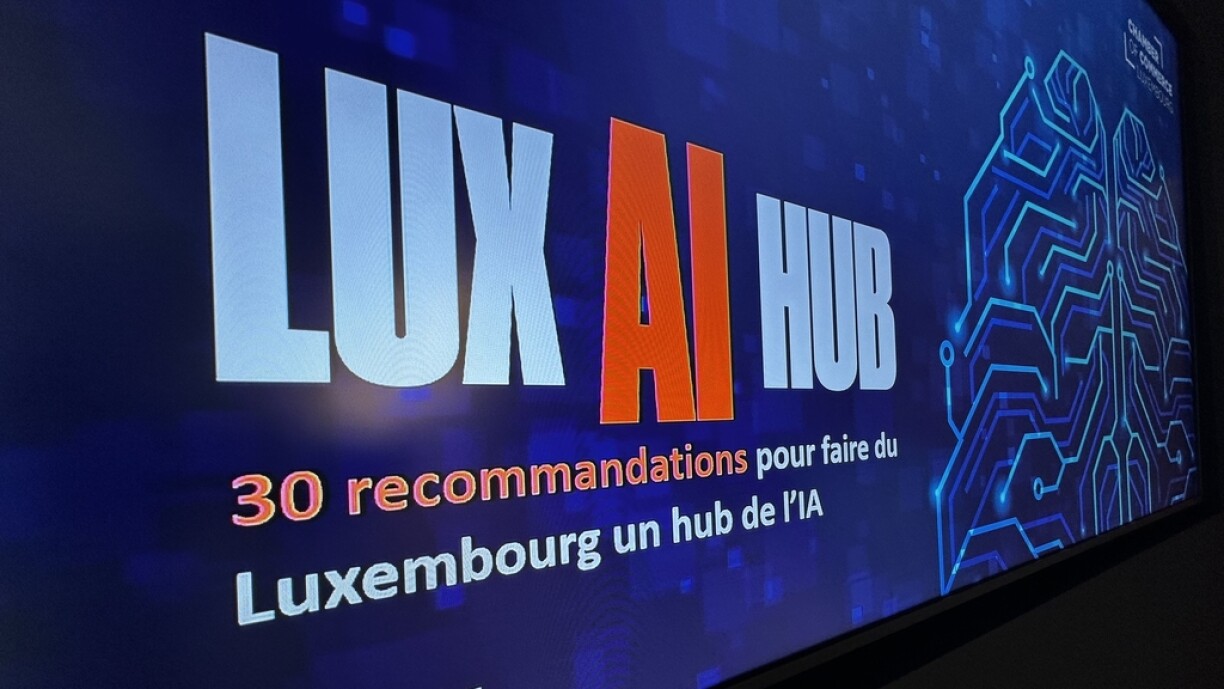
On Tuesday, the Chamber presented a new strategy to help transform Luxembourg into a leading AI hub in Europe.
The Chamber of Commerce argues that introducing artificial intelligence across both the private and public sectors could significantly improve efficiency and productivity without endangering jobs.
Despite its strong infrastructure – such as the MeluXina supercomputer – Luxembourg still faces challenges. There is a lack of coordination between stakeholders and a shortage of skilled experts, according to Carlo Thelen, Director General of the Chamber of Commerce. He further states that productivity in Luxembourg has slightly declined in recent years, which he sees as being a worrying trend for the long-term competitiveness of the national economy.
Since September 2024, a working group involving 17 companies has been exploring the potential of artificial intelligence. The group was led by Gérard Hoffmann, who emphasised the importance of collective action.
He noted that many people across different sectors –research, private enterprise, and public institutions – are working on AI-related projects, but often in isolation. In his view, the missing link is a central platform that allows stakeholders to align their efforts and pool resources in the same direction.
The working group also examined the energy impact of AI technologies, a topic gaining attention across Europe. Hoffmann acknowledged that AI systems, particularly large models, require significant computing power, but also pointed out that each new graphics processing unit (GPUs) is becoming more energy efficient.
Nevertheless, Hoffmann stressed that how the energy is produced remains crucial, and AI must be considered part of a wider environmental conversation.
AI is also a matter of strategic power. Thelen warned that global economic superpowers like the United States and China are moving fast to dominate the AI landscape. In this context, data is viewed as a new natural resource – those who control and process it effectively will hold significant geopolitical leverage.
Thelen argued that Europe must urgently position itself between these two tech giants, and that Luxembourg can play a meaningful role in strengthening Europe’s stance in this field.
The government is also making AI a national priority. In its most recent coalition agreement, artificial intelligence, data, and quantum technologies were highlighted as key areas of focus.
After the recent unveiling of Luxembourg’s national strategy for digital sovereignty, presented by Economy Minister Lex Delles, Justice Minister Elisabeth Margue, and Digitalisation Minister Stéphanie Obertin, the contribution of the Chamber of Commerce further underlines the urgency of coordinating public and private efforts in areas such as AI, data governance, and quantum technologies.
All of these initiatives are aimed at making Luxembourg a digital pioneer within Europe.
Link: Read the Chamber of Commerce’s press release [FR]